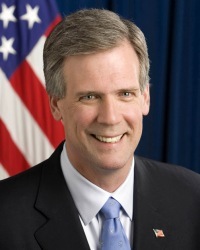
Those who know me best have little doubt: I am irrepressibly optimistic. Not naive, mind you — at least from my perspective — but whether by personality, disposition, or faith, I am wont to believe the best about people, and circumstances, and the future. I drive my wife nuts, she being of a decidedly more pessimistic bent.
But I must confess of late to a recurring sense of foreboding, about a great many things. Now, prognosticating about the future is a fool’s game, to be sure; a review of most any futurist’s predictions invariable shows a predictive rate substantially less than could be had by tossing a coin.
But I do have eyes, and ears, and over half a century of something one less circumspect might call “wisdom” — and a sense of the spiritual sharpened mostly by ignoring its promptings, with the invariable consequences. Wisdom, as they say, is gained by experience — and experience is gained by lack of wisdom.
In a world which incessantly rips its cultural chords at rock-concert levels, it is no small feat to listen to the still, small voice — and harder yet to distinguish it from the countless seductive whispers and wishes of life long lived in self-gratification and indulgence. Yet that voice ever quiet is nevertheless persistent — and it seems to be speaking with an urgency and clarity which is hard to dispel.
We are standing, I sense, at the edge of an abyss — and the earth beneath our feet is shifting and unstable.
We live in a society saturated with information. The paradox of this spectacle is that we no longer possess the ability to integrate and evaluate the information which assaults us from every direction. One moment the news ticker at the bottom of the screen shows some mind-numbing drop in the stock market; the next moment, we are enthralled with some bitch queen trying to kick the shins of his lesbian competitor on Project Runway. The news media jumps from the crisis of the second to the latest Hollywood dalliance, and from there to some hopeless hyped hysteria about global warming or the health scare of the week, providing no sense of perspective about which of these might be the more important.
So it behooves us to stand back; to turn off the TV, shut down the browser, put down the paper, turn off talk radio, and truly listen — not to the screeching banshees with their banal hysteria, but rather to that inner source, be it spirit, or soul, or mind, or the wisdom acquired by life’s experiences.
Take a moment, if you will, for a brief look around, surveying our 21st-century world. Let yourself absorb the panoramic view, all 360 degrees, not averting your eyes at things which are unsettling or fear-provoking.
Glance first dead ahead: we are in the midst of a financial meltdown. Of course, there have been many financial crises in the past, many “Black Fridays”, where years of accumulated wealth have disappeared almost in the twinkling of an eye. Yet our current crisis seems different. The past 50 years in the West, particularly in America, have brought about an extraordinary increase in wealth. This increase has only accelerated, although with periodic painful retractions, as the speed and complexity of our financial systems has increased exponentially. Derivatives, globalization, computer-driven investing, complex financial instruments and securities, have greatly increased both the profitability and the instability of financial systems. Even those who should understand these complex financial instruments and systems can be blindsided — as they were in our current credit crisis.
Much like a complex computer software program, its programmers understand how it should work, and make assumptions about the parameters — which, when when fed unexpected values, leads to catastrophic failure. Our financial wizards lost the ability — or more likely never had it — to control for every eventuality, including those which could cause catastrophic economic failure. We stare in amazement that seemingly no one anticipated our meltdown in mortgage equities; but our hope in and expectations of “experts” will invariably be dashed as system complexity and instability increases.
So now, glancing around, we look to government to save this from the “greed” of Wall Street — although we have long celebrated Wall Street’s greed as long as our profits and portfolio values were rising. It’s Wall Street’s job to be greedy — we have demanded it of them. So we look to government institutions never designed to moderate or correct such lightspeed instability — and are angry when we find them unable to intelligently address this implosion. Even in a perfect world, our elected leaders would have no more wisdom or ability to correct a highly complex and increasingly unstable economic system, where events half a world away can send your nation’s economy reeling in ways you could never have anticipated.
And this is no perfect world, by any measure.
For years we have tolerated incompetence, corruption, dishonesty — and yes, greed — in government while looking the other way. On those rare occasions when politicians have made principled stands, we have rewarded them with a firestorm of political assault, full-throated media ridicule and criticism, and enormous financial pressure from lobbyists pouring money into the pockets of those who purport to represent the people. We have elected a government of the people, in the most literal and disgraceful sense: we have elected, and kept in office, those who share our desire for self-gratification and materialistic acquisition at the expense of character, moral integrity, honesty, and prudence. The cesspool which is our current Congress is what we have reaped by our own actions — or perhaps more accurately, by our inaction. We have elected those politicians who are like us in every way — and we hate them for it. They are, after all, created in our own image.
Glance a bit in another direction and you will find a host of unsolvable problems of a magnitude as great or greater than our current credit crisis. Social Security and Medicare roar down the tracks toward a washed-out bridge, with no engineer at the throttle; massive budget deficits balloon as we pour trillions into a war that no one seems interested in fighting; trillions more pour forth in political favors and pork designed to maintain our corrupt politicians in their unchallengeable congressional seats. $700 billion in bailouts will seem chump change when our bills for this fecklessness come due.
Glance yet again, and watch a presidential election wherein we seem poised to elect a candidate without portfolio, with a long history of association with corrupt political machine pols and leftist bomb throwers, including those both rhetorical and literal. This is the Messiah to whom we look for the solutions to our increasingly intractable problems, setting aside all rational thought for the opiate optimism which sees salvation in smooth words and sage assurances. Indeed, we seem eager and ready to bring to fruition the revolution of the 60’s: with clenched fists thrust skyward, the age of peace, free love, drugs, irresponsibility, and emotional feel-good policies is upon us, based not on experience nor any understanding of human frailty and corruption, but rather on a blind idealistic utopianism.
Then glance around the world, where the Russian bear roars menacingly; where Iran races to nuclear capability while diplomats twiddle and dither, driven by a religious fascism which glorifies death as they bow down to the false prophet; where an increasingly impotent Israel is surrounded and threatened by massing forces zealous for its destruction; where China pursues a massive military buildup as it eyes Taiwan and Southeast Asia; where Korea cranks out nukes and missiles, selling them to the world’s most wicked regimes; where Europe is ludicrous in its impotence, ever seeking our protection when desperate while hating us ever the more; where the sun has finally set on the British Empire, leaving only a pathetic pandering jester where a mighty force for civilization and law once stood; where a thousand failed states are seething cauldrons of violence, and poverty, and hatred, engendering transnational terrorists now empowered by the same technology we hope will save us. The world, like its financial systems, is extraordinarily unstable, with powerful centrifugal forces breaking apart even once proud and powerful nation-states. The parched, cracked grasses await but a spark to start an inferno.
Then glance at culture (if you can stomach it), where the decadent is celebrated, where the good is ridiculed, where the satyr is worshiped, where no pillar of tradition may stand nor bulwark of morality may endure. Our media promulgate not truth but narrative, not fact but fabrication, a fully empowered propaganda machine entirely co-opted by postmodern secular culture and messianic politics.
And yet, here we sit, watching on our flat screens in full HD the celebration of androgynous eunuchs in staged competitions about who can create the prettiest dress or redesign the penthouse of some satyrical single, who long ago decided that life was about getting laid, leaving the emotional, physical, and social tab for someone else to pay. These are the individuals we celebrate and elevate with our eyes, our time, our adulation, our admiration, our money.
The extraordinary instability in the world cannot long endure — and I fear we are ill-prepared in the extreme for the abyss which will follow. We have raised generations to believe they are entitled to ease, wealth, and prosperity; we have taught them through our easy divorces and casual shack-ups that commitment only lasts as long as it feels good, and that love is all about sex; we have failed to provide any framework of character, morality, integrity, and perseverance upon which to rest when all we have taken for granted — the wealth, the comfort, the false security, the easy irresponsibility — crumbles to the ground.
It is long past time to get back to basics — to faith, to church, to principles, to relationships, to integrity. We are, I believe, about to be tested in a most difficult and frightening way — a darkness the likes of which we have not seen before, and may never see again. The provocation may be known, or unknown, be it nuclear terrorism, or some yet-unseen financial collapse; a cataclysmic natural disaster; or a butterfly in some unknown location flapping its wings and setting off a chain reaction which ignites the world in conflagration.
Of course, such prognostications may well be wrong; perhaps naive optimism would be the better course and certainly more pleasant to entertain. But as for me, it is time to focus: to look hard at my spiritual, financial, and relational assumptions, to tune out far more of a chaotic and decaying culture, to prepare for the worst while hoping for the best, while asking God to shine his light of conviction on my life to purify and strengthen it, and hopefully grow in some measure of wisdom. It is time to simplify, to prepare, to fast, to pray, to repent. It is time to stop spending on the frivolous and start giving more generously.
If you are a person of faith, it is time to dig in, hard, and quit playing games — your life may depend on it. If you are skeptical of such matters, consider: upon what will you lean when your world collapses? Will your considered indifference and intellectual smugness about us fools of faith save you? What will you do when all that matters to you is taken, and you are left, finally, profoundly alone with naught but that frightened face in the mirror?
I have slept for too long, as have all of us. It is time to fill the lamps with oil lest they be found empty when the bridegroom arrives.
 In my previous post on guilt and shame, I discussed their nature and differences, their impact on personal and social life, and their instrumentality in much of our individual unhappiness and communal dysfunction. If indeed shame is the common thread of the human condition–fraught as it is with pain, suffering, and evil–it must be mastered and overcome if we are to bring a measure of joy to life and peace to our spirits and our social interactions.
In my previous post on guilt and shame, I discussed their nature and differences, their impact on personal and social life, and their instrumentality in much of our individual unhappiness and communal dysfunction. If indeed shame is the common thread of the human condition–fraught as it is with pain, suffering, and evil–it must be mastered and overcome if we are to bring a measure of joy to life and peace to our spirits and our social interactions. A wise friend–a man who helped me emerge from a period of considerable difficulty in my life–once taught me a simple lesson. In less than a minute, he handed me a gift which I have spent years only beginning to understand, integrating it into my life with agonizing slowness. It is a lesson which intellect cannot grasp or resolve, which faith only begins to illuminate–a simple principle which I believe lies close to the root of the human condition.
A wise friend–a man who helped me emerge from a period of considerable difficulty in my life–once taught me a simple lesson. In less than a minute, he handed me a gift which I have spent years only beginning to understand, integrating it into my life with agonizing slowness. It is a lesson which intellect cannot grasp or resolve, which faith only begins to illuminate–a simple principle which I believe lies close to the root of the human condition. David Brooks, in his NY Times Op-Ed piece,
David Brooks, in his NY Times Op-Ed piece,  On an
On an 


